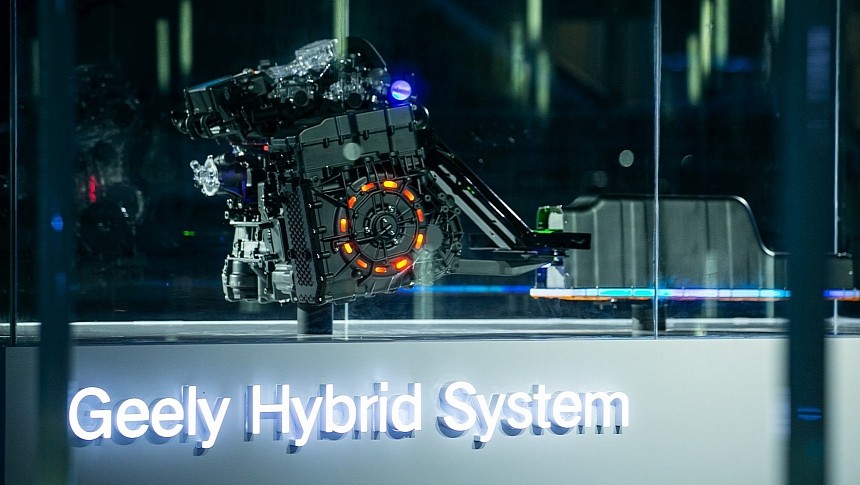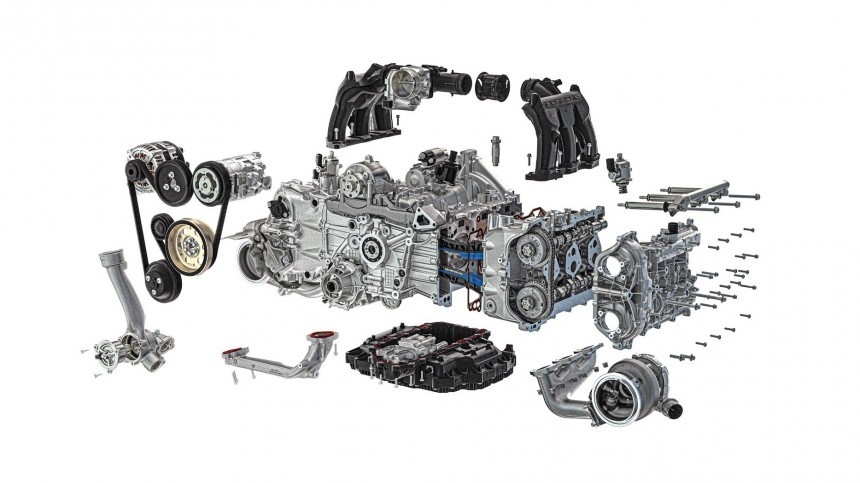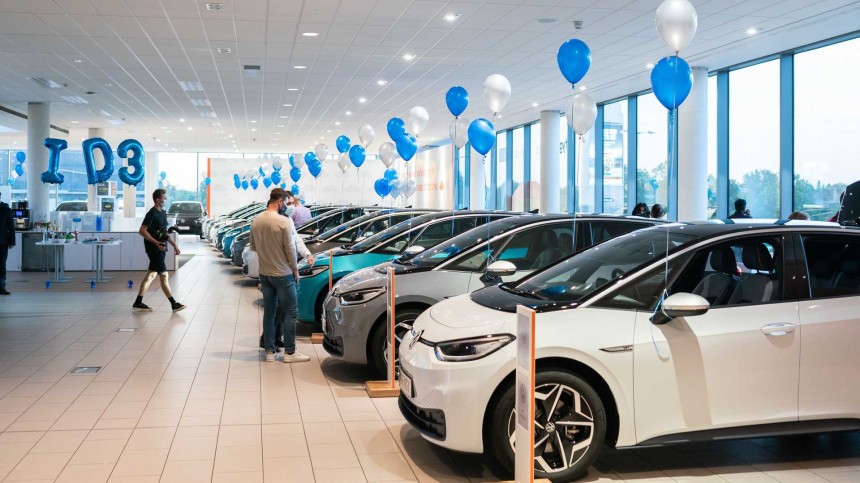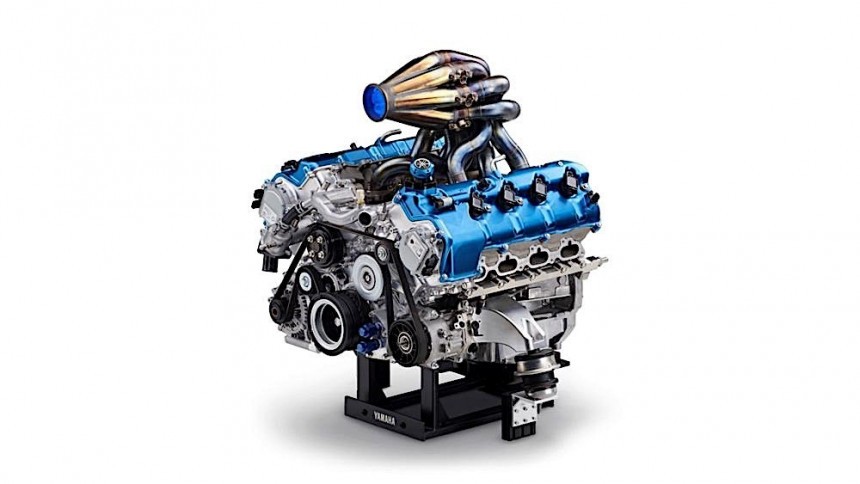Many have declared that internal combustion engines (ICEs) are dead – myself included. However, the latest edition of the Vienna Motor Symposium gave Fritz Indra the certainty that the game is far from lost. Considered the ICE Pope by his fans, Indra is a long-time critic of strategies that only counts on battery electric vehicles (BEVs). In his opinion, even automakers that are publicly all-in on these cars still have a plan B that includes engines.
This is what Indra told the German magazine Focus in a recent interview. If you do not know the man, he has developed and prepared ICEs for Alpina, Audi, and General Motors. He has also written books with Niki Lauda about racing mills. According to the retired engineer, professor, and industry consultant, nobody can speak openly about keeping combustion engines working because of political pressures and the stock market. Indra believes that anyone who openly commits to the combustion engine will see a sharp depreciation in their market cap.
After visiting the Austrian symposium, the engineer said he is convinced that you cannot take automakers' public statements for face value: you have to read between the lines. Although Volkswagen and Mercedes-Benz only talk about BEVs, Indra has strong evidence that the two companies are still working with ICEs.
The Austrian consultant said that Volkswagen still has 2,300 people working on combustion engines. Apart from that, an engineer from that automaker presented the 1.5-liter TFSI Evo 2 ICE to a small group of people weeks before the Vienna Motor Symposium. The retired engineer said that it is an impressive machine.
Regarding Mercedes-Benz, the company made a presentation at the symposium that introduced a new platform in its last slide. The German automaker said that this new architecture is open to all drive types, meaning it is not dedicated to electric cars. Indra said that this platform will receive engines developed by Geely that deliver an astonishing thermal efficiency of 47%, thanks to the Miller cycle and volumetric ignition. The ICE Pope did not elaborate on the method for volumetric ignition, but several companies are studying the use of microwaves instead of spark plugs.
Indra also denied that we are seeing the last generation of ICEs. In his words, the "wishful thinking" politicians have about this is not feasible, particularly because customers will not comply. If combustion-engined vehicles were really banned, buyers would rush to purchase the last ones and would keep them running for more than 20 years – something current BEVs could only achieve if their battery packs were replaced. Recent developments back up what the Austrian professor said.
Although Tesla presented high sales in the last quarter, demand is still problematic. Until deliveries surpass production figures, inventories will keep on building up. It was not the case in Q2 2023: the company produced 479,700 BEVs and sold 466,140, a 13,560-units difference. Add that to the 84,583 cars Tesla still had to find buyers for after Q1 2023, and the updated number is 98,143 worldwide. It is an impressive number of vehicles yet to deliver. And Tesla is not alone.
Due to low demand, Volkswagen interrupted the production of ID family vehicles in Europe. In China, it reduced prices to try to get rid of them as soon as possible. In Brazil, the company will not sell the ID. Buzz or the ID.4: it will only offer them as subscription vehicles. Ford is also facing issues in the US, but Axios discovered it is more widespread than it may seem.
Cox Automotive discovered that 92,000 BEVs are currently waiting for an owner in the American market. That's equivalent to 92 days of supply, which indicates the US buys 1,000 electric cars per day. As you can see, these numbers do not include Tesla inventories or sales because the company sells directly to its customers. Luxury vehicles, such as the Audi Q4 e-tron, Q8 e-tron, and GMC Hummer EV, have inventories above one hundred days. In other words, it affects all BEV brands, even the most famous in the pack.
Indra thinks that forcing customers to buy a single kind of car would lead to an "economic catastrophe," with several car companies going bust and thousands of jobs vanishing. As politicians could not get the votes they need in such a scenario, all they can do is accuse car buyers of not helping and giving up on trying to impose a single solution. The Austrian professor believes Frans Timmermans will not get reelected in 2024 and will cease to be the executive vice president of the European Commission when his term ends. Indra blames this Dutch politician for advocating for an ICE ban. In the end, the consultant believes 85% of all vehicles will retain combustion engines, and 15% will be electric because they are highly efficient, which does not mean they are sustainable.
The Austrian professor stressed that the structural battery pack Elon Musk introduced in Tesla vehicles helped lower the weight. At the same time, recycling the batteries and recovering their raw materials will be challenging: you'll have to "shred these cars" because these components will "be part of the vehicle, glued in or permanently installed." According to Indra, lithium-ion batteries will be inevitable in the next ten years. Producing them in Europe or the US would make no sense because the raw materials they need "come largely from China." The way the battery supply chain is currently structured, pursuing a BEV future is putting all eggs in Beijing's basket.
If combustion-engined vehicles really remain in production, the Austrian consultant believes they will use e-fuels, which will prevent them from releasing new carbon into the atmosphere. That's the main argument BEV advocates use against combustion engines instead of focusing on the pollutants they generate. Indra only warned that Europe would never produce these fuels due to the energy cost on the continent.
The professor also commented on fuel cell vehicles and said they should be used mostly on trucks because of the hydrogen tanks. Indra also doubted that passenger cars would get fuel cells due to the tank system and the lack of a hydrogen refueling network, which will demand time to be established – if anyone takes the challenge seriously, which no one has until now.
After visiting the Austrian symposium, the engineer said he is convinced that you cannot take automakers' public statements for face value: you have to read between the lines. Although Volkswagen and Mercedes-Benz only talk about BEVs, Indra has strong evidence that the two companies are still working with ICEs.
The Austrian consultant said that Volkswagen still has 2,300 people working on combustion engines. Apart from that, an engineer from that automaker presented the 1.5-liter TFSI Evo 2 ICE to a small group of people weeks before the Vienna Motor Symposium. The retired engineer said that it is an impressive machine.
Indra also denied that we are seeing the last generation of ICEs. In his words, the "wishful thinking" politicians have about this is not feasible, particularly because customers will not comply. If combustion-engined vehicles were really banned, buyers would rush to purchase the last ones and would keep them running for more than 20 years – something current BEVs could only achieve if their battery packs were replaced. Recent developments back up what the Austrian professor said.
Although Tesla presented high sales in the last quarter, demand is still problematic. Until deliveries surpass production figures, inventories will keep on building up. It was not the case in Q2 2023: the company produced 479,700 BEVs and sold 466,140, a 13,560-units difference. Add that to the 84,583 cars Tesla still had to find buyers for after Q1 2023, and the updated number is 98,143 worldwide. It is an impressive number of vehicles yet to deliver. And Tesla is not alone.
Cox Automotive discovered that 92,000 BEVs are currently waiting for an owner in the American market. That's equivalent to 92 days of supply, which indicates the US buys 1,000 electric cars per day. As you can see, these numbers do not include Tesla inventories or sales because the company sells directly to its customers. Luxury vehicles, such as the Audi Q4 e-tron, Q8 e-tron, and GMC Hummer EV, have inventories above one hundred days. In other words, it affects all BEV brands, even the most famous in the pack.
Indra thinks that forcing customers to buy a single kind of car would lead to an "economic catastrophe," with several car companies going bust and thousands of jobs vanishing. As politicians could not get the votes they need in such a scenario, all they can do is accuse car buyers of not helping and giving up on trying to impose a single solution. The Austrian professor believes Frans Timmermans will not get reelected in 2024 and will cease to be the executive vice president of the European Commission when his term ends. Indra blames this Dutch politician for advocating for an ICE ban. In the end, the consultant believes 85% of all vehicles will retain combustion engines, and 15% will be electric because they are highly efficient, which does not mean they are sustainable.
If combustion-engined vehicles really remain in production, the Austrian consultant believes they will use e-fuels, which will prevent them from releasing new carbon into the atmosphere. That's the main argument BEV advocates use against combustion engines instead of focusing on the pollutants they generate. Indra only warned that Europe would never produce these fuels due to the energy cost on the continent.
The professor also commented on fuel cell vehicles and said they should be used mostly on trucks because of the hydrogen tanks. Indra also doubted that passenger cars would get fuel cells due to the tank system and the lack of a hydrogen refueling network, which will demand time to be established – if anyone takes the challenge seriously, which no one has until now.



















